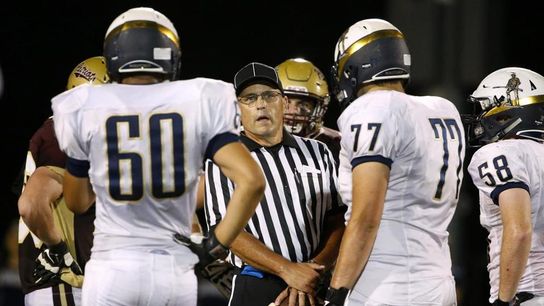Last month we had a story on the looming crisis threatening high school football -- vanishing officials.
With the season just two months away, Houston may see the consequences of the thinning of the zebra herd up close and personal.
The Houston chapter of the Texas Association of Sports Officials is responsible for an area as large as a small European nation, which requires "at least" 1,500 refs to fully staff games from middle school through the various sub-varsity ranks to the ever-growing varsity games in one of the fastest-growing metro areas in the country.
Right now, the Houston TASO chapter is hoping to get to 1,200 by the deadline to staff officials for games this fall.
The problems in Houston are the same as those nationally: new recruits aren't sticking around, largely because of the abuse they take from coaches and fans.
"The retention rate is, on average, less than 50 percent," crew chief Eric Dumatrait told the Houston Chronicle. "Last year, we were at 60, which is good. We believe the retention rate is a reflection on our training. If we can get them set off on the right foot, not be sensitive to coaches and parents, we believe they'll be back."
Much of the problem is simply getting officials getting going in the profession. Less experienced officials are (naturally) staffed at sub-varsity games, where they can get reps and the expected mistakes of inexperience in outside the glow of Texas's Friday night lights. But, officials say, sub-varsity games are where officials typically take the most abuse, since there are less barriers of contact between the field and the stands.
A game understaffed with officials isn't just a logistical issue, it's a safety problem.
One solution to the issue? One coach suggested schools work with local colleges that offer sport management degrees to provide an officiating and game operations elective that would staff games with young, eager refs. This would compel young people -- a critical demographic that isn't replacing older referees at the necessary numbers -- to work to earn school credits and/or cash and provides a new batch of recruits for local sports organizations. Some will likely enjoy getting a hands-on avenue to work in youth sports and keep doing it beyond graduation, but even if they don't, a new batch of students would come right behind to replace them. It's a win-win for both sides.
We put the call out on Twitter for other ideas. Here were some answers from high school coaches.
